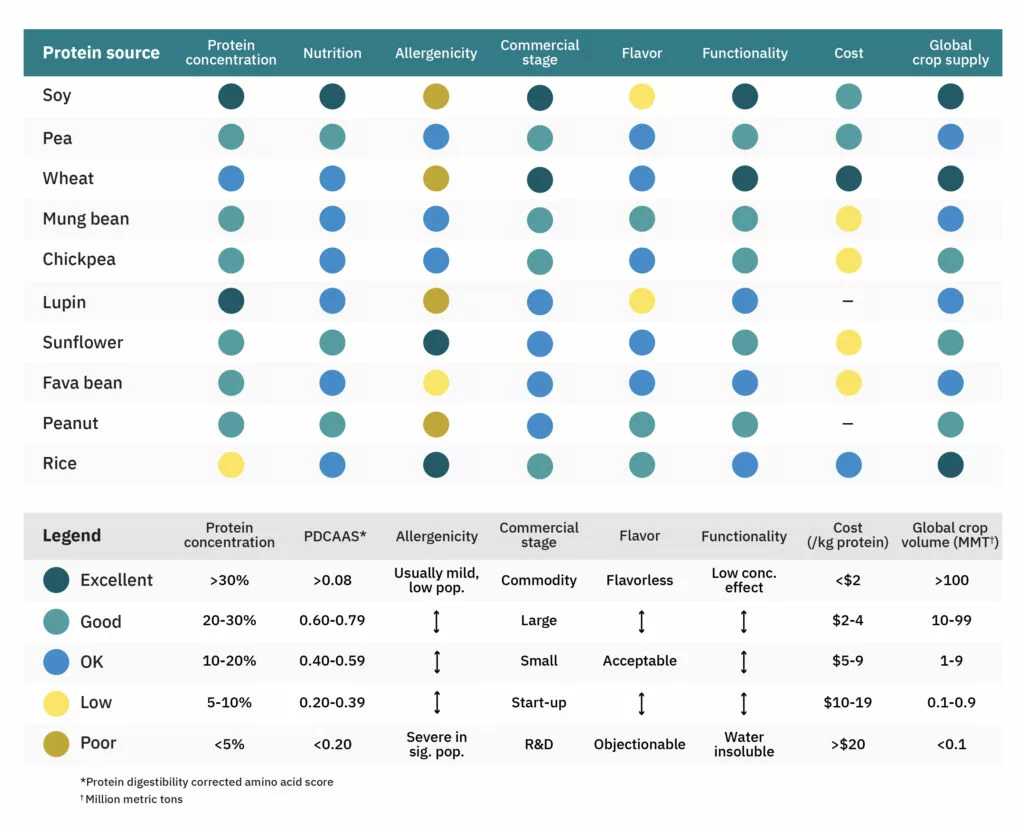Media Releases
Food Innovations and Health Aspects
Media Releases

Academic and industry experts showcase the world of future foods and their health benefits.
A growing and ageing global population creates pressure on the food industry to find healthy and sustainable ways to meet consumer demands without negatively impacting the environment. In Singapore, we are committed to grow local food production, so that the nation can produce 30 per cent of our nutritional needs by 2030, as outlined in the Singapore Food Story by the Singapore Food Agency. Food security and sustainability are also critical to the Sustainable Development Goals, particularly Zero Hunger, Good Health & Well-being, and Responsible Consumption and Production.
Plant-based meat

Of note, alternative proteins — such as plant-based meat, fermentation-derived proteins, and cultivated meat — represent a significant opportunity in contributing towards sustainable food production. Dr Wasamon Nutakul, SciTech Specialist at The Good Food Institute Asia Pacific in Singapore, observes that plant-based meat has significantly less environmental impact compared to farming conventional meat. For instance, plant-based meat uses 23 times less land and water than farming conventional chicken, while producing six times less toxic chemicals and seven times less greenhouse gas emissions.
Most plant proteins are globular, while most animal meat proteins are fibrous. As a result, Dr Nutakul shared, “The core goal of plant-based meat is persuading plant proteins to act like animal proteins.”
Historically, plant proteins used for meat alternatives are derived from commodity crop sidestreams like soy, pea, or wheat. There are many considerations when choosing the optimum plant protein ingredient — including the protein content and quality, the allergen risk that the ingredient poses, and the flavour. Algae, seaweed, and aquatic plants offer notable opportunities as plant protein sources because they are high in protein, contain Omega-3 fatty acid content, and use minimal land yet can be grown very efficiently and inexpensively.
Alternative fats are also an important element in meat alternatives. As plant-based fat technologies improve, they can be used to emulate and enhance qualities such as flavour, texture, cookability, shelf stability, and even bring nutritional benefits (by including Omega-3 fatty acids). An array of technologies also help to improve the moisture and texture of plant-based meat, alongside various other aspects, so that they can be produced more efficiently while catering to customers.
Sustainable seafood

For those who prefer the taste of the sea, sustainable seafood presents another avenue that can meet the growing global demand for food. However, Mr Mihir Pershad, Founder and CEO of Umami Meats in Singapore, pointed out that “Seafood supply is already under grave threat, with 93 per cent of global fisheries fully depleted or overfished.”
He added, “The key challenge is that we have to find ways to produce additional protein from the oceans, and not just replace our current production levels. By 2050, global consumption is expected to be 78 per cent higher than 2020 levels, and this is something that we have to develop novel technologies for.”
So where are we going to get more fish? Umami Meats came upon the idea of producing fish without having to grow the whole fish, creating a more sustainable food system that eliminates inedible or uneaten fish parts. This led to cultivated seafood (growing muscle and fat cells from fish in a lab).
Cultivated fish can be even more versatile than traditional fish, creating food products from fish that are inefficient, hard to produce, or seasonally limited. For example, sashimi could become more available and affordable.
Importantly, cultivated fish can be better for our health and our oceans. After all, they are free from mercury, antibiotics, microplastics, and parasites. This also helps to protect and restore biodiversity by preventing overfishing in our waters, while alleviating ocean pollution as 25-30 per cent of plastic in oceans come from fishing.
Walking the allergy tightrope

(Plant protein sources summary from GFI’s plant protein primer)
Dr Thimo Ruethers, Research Fellow in Human Health & Aging at the Tropical Futures Institute (TFI) at James Cook University (JCU) in Singapore, points out that the allergy risk is an important consideration when developing alternative foods. For example, people who are allergic to birch pollen are at substantial risk of also reacting to many foods, including soy, peanut, mung bean, and other ingredients for plant-based meat.
Meanwhile, cell-based meat offers an opportunity to avoid adverse reactions to, for example, seafood by eliminating non-immunological risks such as biotoxins and parasites. However, the risk of immunological adverse reactions, or rather food allergies, still persists. Up to five per cent of people in the world are allergic to seafood, and the allergies are often serious, rapid, and last for a lifetime. Notably, those with a mite allergy, which is very common in Singapore, are at increased risk.
There is a wide range of approaches to assess allergenicity and manage allergy risks — including in silico and in vitro analyses, clinical evaluations and data reviews, biosensors to detect allergens, and implementing hypoallergenic traits, production or processing alterations.
Ultimately, the allergenicity of wild (captured) seafood is under-investigated, while the allergenicity of farmed seafood (aquaculture) is still under investigation. Alternative seafood, such as cultivated fish, present an option where the allergenicity is more controllable, thus promoting safer and healthier diets.
View the full recording of the webinar “Food Innovations and Health Aspects”.
Check out Professor Andreas Lopata’s and Dr Thimo Ruethers’s staff and research profiles.
Learn more about the Tropical Futures Institute and discover further information on areas of research and research strength at James Cook University in Singapore.
Contacts
Professor Andreas Lopata andreas.lopata@jcu.edu.au
Dr Thimo Ruethers thimo.ruethers@jcu.edu.au
Media: Mr Edwin Teo edwin.teo@jcu.edu.au